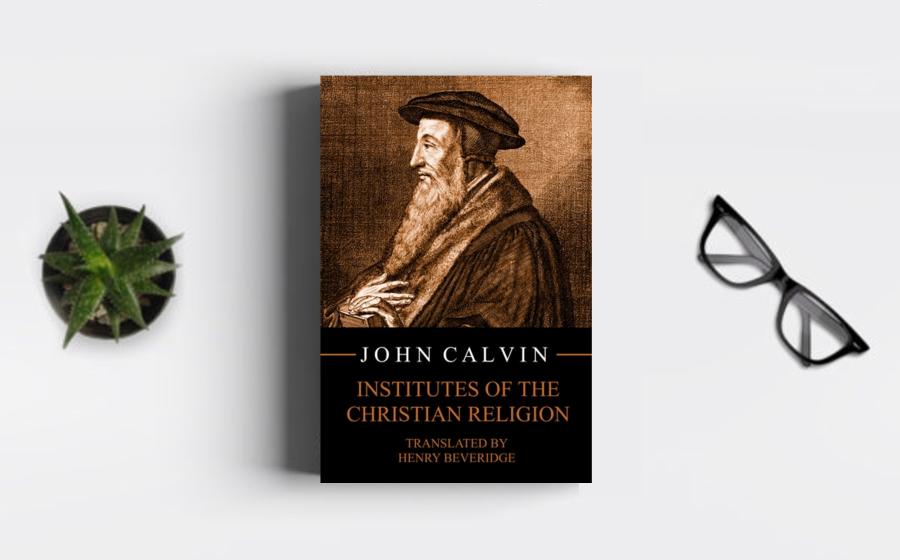John Calvin's "Institutes of the Christian Religion,"
first published in 1536 and expanded throughout his
lifetime, stands as a seminal work that has profoundly
shaped the course of Christian theology. As a
foundational text of the Reformation, Calvin's magnum
opus provides a comprehensive and systematic exposition
of Protestant theology, offering insights into doctrine,
ethics, and the Christian life. Beyond its historical
significance, the "Institutes" remains one of the most
inspirational books of all time due to its intellectual
rigor, theological depth, and enduring impact on
Christian thought.
The "Institutes" is structured
as a systematic theology, presenting a coherent and
organized framework for understanding Christian
doctrine. Calvin's primary objective is to provide
clarity and coherence to the essential tenets of the
Christian faith, offering a systematic exposition of
biblical teachings. The work is divided into four books,
covering topics such as the knowledge of God, the nature
of Christ, justification by faith, and the Christian
life. This systematic approach has contributed to the
enduring relevance of the "Institutes" as a theological
reference and educational resource.
One of the
reasons the "Institutes" is considered inspirational
lies in Calvin's commitment to biblical authority.
Calvin places a strong emphasis on the authority of
Scripture as the foundation of Christian doctrine and
ethics. His meticulous engagement with biblical texts,
supported by careful exegesis and interpretation,
reflects a deep reverence for the Word of God. This
commitment to scriptural authority has resonated with
generations of readers, inspiring a profound respect for
the Bible as the ultimate source of theological
understanding and guidance.
Calvin's theological
insights, particularly on the doctrine of
predestination, have sparked both admiration and
controversy. The "Institutes" expounds Calvin's views on
God's sovereignty in salvation, asserting that God, in
His infinite wisdom, has predetermined those who will be
saved. While this doctrine has been a point of
theological debate, it underscores Calvin's emphasis on
the majesty and supremacy of God. The "Institutes"
challenges readers to grapple with profound theological
questions and encourages a deeper contemplation of the
mysteries of divine providence.
The ethical
dimension of Calvin's theology is another source of
inspiration found in the "Institutes." Calvin addresses
practical aspects of Christian living, emphasizing the
importance of piety, humility, and gratitude. His
teachings on the Christian life extend beyond abstract
theological concepts to practical applications, urging
believers to live in accordance with their faith. This
emphasis on the transformative power of theology in
shaping ethical conduct has resonated with readers
seeking a holistic integration of faith and life.
Calvin's treatment of the church and ecclesiology in
the "Institutes" has contributed to its enduring
relevance within Christian communities. He articulates a
vision of the church as a visible community of
believers, governed by pastors and elders, and
characterized by the preaching of the Word and the
administration of the sacraments. Calvin's
ecclesiological framework has influenced the structure
and practices of Reformed and Presbyterian churches,
fostering a sense of order, accountability, and worship
rooted in biblical principles.
The "Institutes"
has not only served as a theological guide but has also
played a significant role in shaping the broader
intellectual and cultural landscape. Calvin's emphasis
on education, his advocacy for the integration of faith
and learning, and his commitment to cultivating a
Christian worldview have left a lasting impact on
Christian education. The legacy of Calvin's thought can
be traced in the establishment of educational
institutions influenced by Reformed theology, fostering
a tradition of intellectual engagement within a
Christian framework.
Calvin's theological
writings, including the "Institutes," have contributed
to the development of a Reformed theological tradition
that extends beyond his immediate historical context.
The "Institutes" became a foundational text for the
Reformed tradition, shaping the theology of subsequent
generations of theologians and pastors. Its influence
can be seen in the confessional documents of Reformed
churches, theological treatises, and the broader
theological discourse within Protestantism.
The
accessibility of the "Institutes" has also contributed
to its widespread impact. Calvin intended his work to be
a guide for ordinary Christians, providing them with a
systematic and clear understanding of their faith. The
clarity of Calvin's writing, coupled with his ability to
communicate complex theological concepts in a
comprehensible manner, has made the "Institutes"
accessible to a broad audience. This accessibility has
empowered readers from various backgrounds to engage
with profound theological ideas and deepen their
understanding of the Christian faith.
The
enduring impact of the "Institutes" is evident in its
continued readership and influence across centuries.
Translated into numerous languages, the work has reached
a global audience, shaping theological discussions in
diverse cultural and linguistic contexts. Its
adaptability and relevance have allowed the "Institutes"
to remain a source of inspiration for theologians,
pastors, scholars, and believers seeking to explore the
depths of Christian doctrine.
Calvin's intellectual rigor, clarity of expression, and profound engagement with the Christian faith continue to captivate readers, challenging them to delve deeper into the riches of theological understanding and inspiring a life rooted in biblical principles. The "Institutes" remains a timeless masterpiece that invites readers to explore the mysteries of God, grapple with theological complexities, and embark on a journey of faith that extends across generations.






